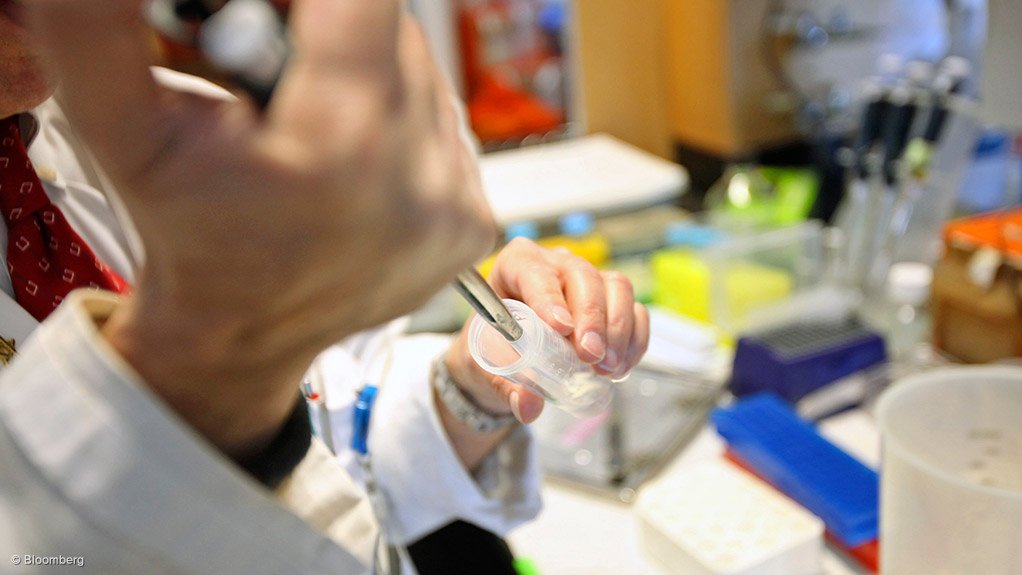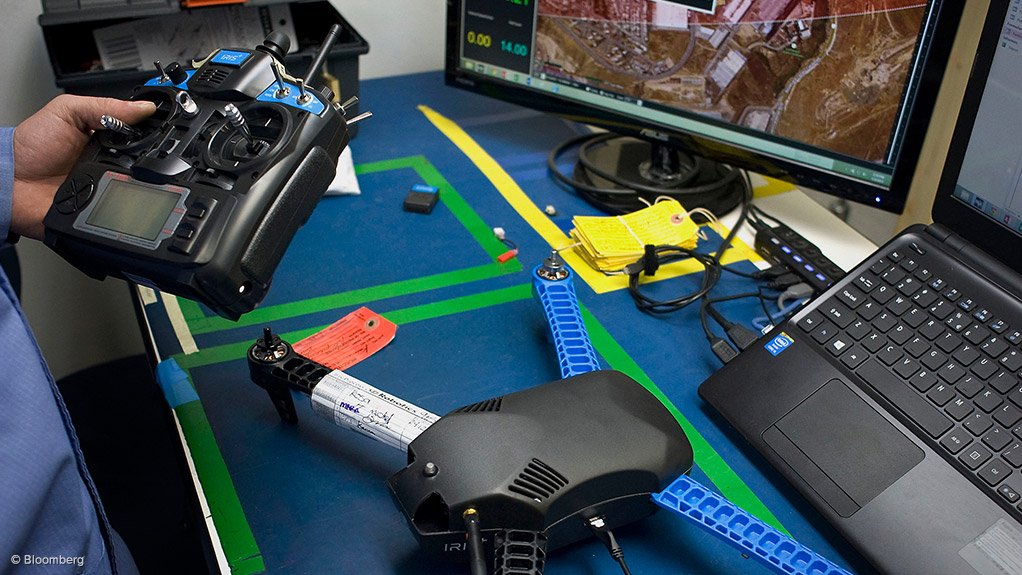South Africa’s R&D spend falls short of Brics counterparts



LOSING SPEED Business expenditure on research and development slowed over the past five years, growing by only 5.7% from 2009/10 to 2013/14
Photo by Bloomberg
LOSING SPEED Business expenditure on research and development slowed over the past five years, growing by only 5.7% from 2009/10 to 2013/14
Photo by Bloomberg
South Africa spends a relatively low proportion of its gross domestic product (GDP) on research and development (R&D), the National Advisory Council on Innovation (Naci) revealed in its yearly South African Science, Technology and Innovation (STI) Indicators report.
“South Africa’s general expenditure on R&D as a percentage of GDP was 0.73% in 2013, down compared with its Brazil, Russia, India and China Brics counterparts, with Brazil at 1.15%, Russia at 1.13%, China at 2.01%, and India at 0.82%,” said Naci council member Dr Azar Jammine during the release of the report findings at the council’s Business Symposium on STI Investment, in Pretoria, earlier this month.
Further, business expenditure on R & D (BERD) slowed over the past five years, growing by only 5.7% from 2009/10 to 2013/14, compared with 21.4% from 2004/05 to 2008/09.
BERD was low, at 45.9%, in 2013/2015, compared with 53.2% in 2009 and 58.3% in 2005/2006.
The report provides core South African STI indicators with a view to enabling trend analysis over time.
“This [finding is] a function of the fact that economic growth has declined and businesses are finding it tougher, particularly in the concentrated kind of environment where much of the economic power in South Africa resides with a relatively small number of huge and powerful companies,” Jammine said, noting that this highlighted the need to start diversifying the spread of R&D initiatives to small and medium-sized businesses.
The report also indicates that South Africa produces relatively few innovations in the high- and low-technology sectors, with this being apparent in the paper and textile industries.
The export performance of the country, spurred by technology intensiveness, also indicates “the inadequate international competitiveness of the high- and low-technology manufacturers”, according to the report.
This implies that there is slow progress in transforming South Africa towards a knowledge-based economy.
Further, South Africa imports more disembodied technologies than other countries within the Brics group, the US, the UK and Japan, but fewer than South Korea.
While high, technology payments – the country’s expenditure on the right to use intellectual property from other countries – are not necessarily severe. “It depends on the amount/volume of technology transferred, learned and diffused,” Jammine said, noting that South Africa pays more in importing, rather than producing technology, which leads to problems in terms of insufficient exports.
In 2014, exports from high-technology manufacturers were significantly lower than the total merchandise exports for that year, while medium-technology manufacturers’ exports were 0.5% of global exports in the same category.
The highest share of South Africa’s 2014 merchandise exports was accounted for by resource-based manufacturers (30.14%), followed by medium-technology manufacturers (28.72%), primary products (23.42%), low-technology manufacturers (7.27%) and high-technology manufacturers (3.89%).
The report notes that, to position South Africa as a knowledge-based economy, the Ten-Year Innovation Plan has set a target of high- and medium-technology exports as a percentage of all exports, up from the 32% share in 2014.
While the revised target, according to the National Development Plan, is to achieve R&D expenditure of 1.5% of GDP by 2019, Jammine acknowledged this as “a tall order”.
Nevertheless, a key success in the science and technology field is that the global share of the country’s academic publications has increased from 0.51% of the world’s publications in 2005 to 0.81% in 2014, which is “commendable, when the country’s share of world GDP is about 0.3% of the world’s GDP”, he said.
However, much of the growth in scientific publications is not in natural sciences, engineering and technology (SET) – the scientific field that is the priority of innovation-driven economies, according to the report.
“The number of [SET] researchers per 1 000 in South Africa is very low, with relatively low levels of SET graduations (30% of all graduates in 2014 were in SET), compared with much higher ratios in many comparative countries, [where] for example, 47% of all graduates in South Korea graduate in SET,” Jammine said.
Comments
Press Office
Announcements
What's On
Subscribe to improve your user experience...
Option 1 (equivalent of R125 a month):
Receive a weekly copy of Creamer Media's Engineering News & Mining Weekly magazine
(print copy for those in South Africa and e-magazine for those outside of South Africa)
Receive daily email newsletters
Access to full search results
Access archive of magazine back copies
Access to Projects in Progress
Access to ONE Research Report of your choice in PDF format
Option 2 (equivalent of R375 a month):
All benefits from Option 1
PLUS
Access to Creamer Media's Research Channel Africa for ALL Research Reports, in PDF format, on various industrial and mining sectors
including Electricity; Water; Energy Transition; Hydrogen; Roads, Rail and Ports; Coal; Gold; Platinum; Battery Metals; etc.
Already a subscriber?
Forgotten your password?
Receive weekly copy of Creamer Media's Engineering News & Mining Weekly magazine (print copy for those in South Africa and e-magazine for those outside of South Africa)
➕
Recieve daily email newsletters
➕
Access to full search results
➕
Access archive of magazine back copies
➕
Access to Projects in Progress
➕
Access to ONE Research Report of your choice in PDF format
RESEARCH CHANNEL AFRICA
R4500 (equivalent of R375 a month)
SUBSCRIBEAll benefits from Option 1
➕
Access to Creamer Media's Research Channel Africa for ALL Research Reports on various industrial and mining sectors, in PDF format, including on:
Electricity
➕
Water
➕
Energy Transition
➕
Hydrogen
➕
Roads, Rail and Ports
➕
Coal
➕
Gold
➕
Platinum
➕
Battery Metals
➕
etc.
Receive all benefits from Option 1 or Option 2 delivered to numerous people at your company
➕
Multiple User names and Passwords for simultaneous log-ins
➕
Intranet integration access to all in your organisation



















